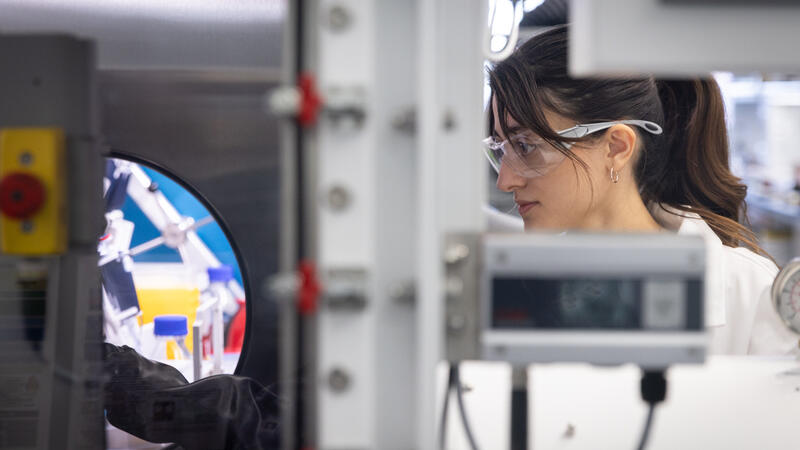News
Sustainable Biomass Conversion
Autonomous lab accelerates discoveries to harness power of microbes
An autonomous experimentation platform at the Great Lakes Bioenergy Research Center is poised to accelerate discoveries that will harness the power of microbes to advance U.S. leadership in the developing bioeconomy. With the ability to design and run multiple concurrent experiments, Proteus expands the scope and pace of exploration, potentially increasing the rate of discovery.
From early childhood, Harrison Moon was fascinated by the natural world, and this fascination eventually steered him towards a career in plant pathology. Currently, he is a postdoctoral researcher in the Hittinger Lab at the University of Wisconsin–Madison.
Using machine learning, UW–Madison scientists have identified more than 30 million acres of U.S. farmland abandoned between 1986 and 2018, creating a field-level map of lands that could be used to mitigate climate change.
A team led by researchers at the Center for Advanced Bioenergy and Bioproducts Innovation, in collaboration with the Great Lakes Bioenergy Research Center, has created a valuable new resource that offers a deeper understanding of this valuable bioenergy crop and the possibility of designing a more resilient sorghum plant in the future.
From soil to sequestration, researchers at Princeton University and the Great Lakes Bioenergy Research Center have modeled what a supply chain for second-generation biofuels might look like in the midwestern United States.
The International Union of Forest Research Organizations (IUFRO) has awarded its highest honor to Great Lakes Bioenergy Research Center co-investigator Jiquan Chen.
Great Lakes Bioenergy Research Center researchers Linda Horianopoulos and Rose Lizzo are the winners of the 2024 Service and Outreach Awards in recognition of their dedication to sharing the wonder and excitement of the center’s work and mission.
People are Kahmark’s passion, and mentorship is a key way Kahmark acts on that passion. Kahmark, a research assistant at Michigan State University's Kellogg Biological Station, is the winner of the Great Lakes Bioenergy Research Center’s first mentorship award.
Steven Karlen and Sang-Jin Kim, both senior scientists with the Great Lakes Bioenergy Research Center, are the winners of the first Yaoping Zhang Bioenergy Research Award.
The award recognizes the outstanding productivity and dedication of GLBRC researchers to the center’s mission of bioenergy advancements.
Enright, a doctoral candidate in genetics at the University of Wisconsin–Madison, was awarded the 2024 Jennifer L. Reed Bioenergy Science Award, given annually to recognize early-career women with the Great Lakes Bioenergy Research Center for outstanding research and leadership.
Students from GLBRC co-investigator Bjoern Hamberger showcased their plant research in the 2024 EnergyTech University Prize competition.





